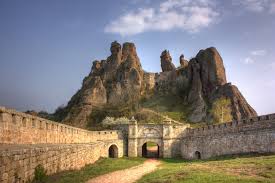记忆方法
记忆“fortress”这个单词,可以将它拆分为“fort”和“-ress”。联想“fort”代表堡垒,想象一个巨大的堡垒(fortress)坚固而稳固,强调它的坚实和不可攻破的特性。这样的联想有助于记住“fortress”是堡垒的意思。
以上内容由AI生成, 仅供参考和借鉴
中文词源
fortress 城堡,堡垒
来自fort, 坚固,坚强,堡垒。-ess, 名词后缀,词源同duress, largess,noblesse.
英语词源
- fortress
-
fortress: see fort
- fortress (n.)
- early 14c., from Old French forteresse, forterece "strong place, fortification" (12c.), variant of fortelesse, from Medieval Latin fortalitia, from Latin fortis "strong" (see fort) + -itia, added to adjectives to form nouns of quality or condition. French -ess from Latin -itia also is in duress, largesse, riches. For change of medial -l- to -r- in Old French, compare orne "elm" from Latin ulmus; chartre from cartula; chapitre from capitulum.
权威例句
- 1. The fortress was proof against the techniques of attack then in use.
- 该防御工事能抵御当时所使用的各种进攻手段。
- 2. The low sun lit the fortress walls with yellow light.
- 低悬的太阳将黄灿灿的阳光泻在堡垒的墙壁上。
- 3. a fortress town enclosed by four miles of ramparts
- 由四英里长的城墙围着的设防城镇
- 4. The easiest way to capture a fortress is from within.
- 堡垒是最容易从内部攻破的.
- 5. A valiant assault force does not fear a strong fortress.
- 攻坚不怕堡垒硬.
